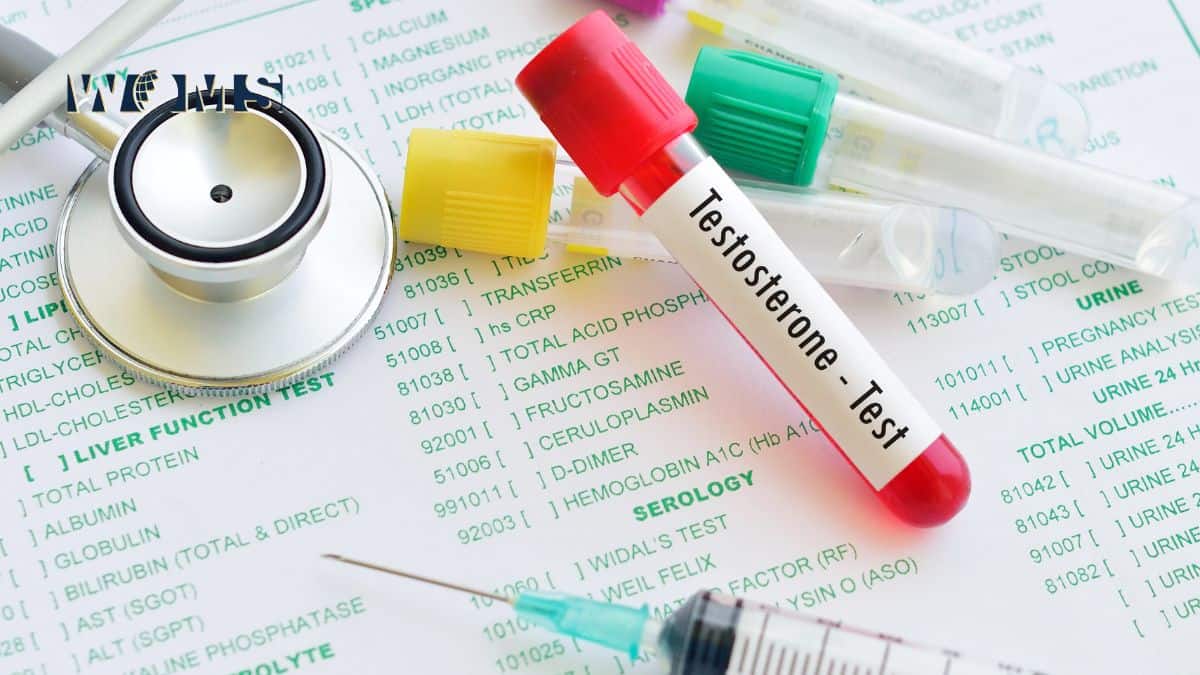The Importance of Checking Your T Levels: Why Men Should Make It a Priority

Testosterone – the hormone produced by the testicles – plays a vital role in developing and maintaining male reproductive tissues and secondary sexual characteristics. For example, it regulates bone density, muscle mass, red blood cell production, and sex drive.
Due to its critical role in male health, men must check their testosterone levels regularly to ensure they remain within a healthy range. This article will discuss the importance of checking your testosterone levels and the potential health problems that can arise from imbalances.
What Testosterone Does for Men
Testosterone is essential for developing male physical characteristics, including facial and body hair, a deep voice, and a muscular physique. It is also crucial for maintaining overall health and well-being in men. For example, testosterone is key in regulating sex drive, mood, cognitive function, and bone density. It also helps maintain a healthy body fat percentage, with low levels of testosterone being associated with increased body fat.
How Testosterone Levels’ Imbalances Can Lead to Men’s Health Problems
High or low T levels can lead to various health problems in men. Low testosterone levels, also known as hypogonadism, can cause a range of symptoms, including reduced sex drive, erectile dysfunction, infertility, decreased muscle mass, and increased body fat. Hypogonadism can also lead to secondary osteoporosis, in which bones become weak and brittle.
On the other hand, high testosterone levels, also known as hypergonadism, can lead to an increased risk of heart disease, acne, hair loss, and prostate cancer. High testosterone levels have also been linked to aggressive and impulsive behavior and an increased risk of injury due to increased muscle mass and decreased flexibility.
Issues Associated with Low Testosterone
As previously mentioned, low testosterone levels can cause various symptoms in men. They include reduced sex drive, erectile dysfunction, decreased muscle mass, and increased body fat. In addition, low testosterone levels can also lead to fatigue, depression, irritability, and difficulty concentrating.
Low testosterone levels are most commonly associated with aging, with testosterone levels declining by around 1% annually after age 30. However, low testosterone levels can also be caused by many other factors, including obesity, diabetes, and certain medications.
Issues Associated with High Testosterone
Some of the most frequent issues found in men with high testosterone levels include increased risk of heart disease, prostate problems, acne, other skin problems, fertility challenges, aggressive or impulsive behavior, or sleep apnea.
It is important to note that while high testosterone levels can cause these health problems, not all men with high testosterone levels will experience these symptoms. Nonetheless, men need to check their testosterone levels regularly to ensure that they remain within a healthy range.
How Men Can Have Their T Levels Tested
Testing testosterone levels is a straightforward process that can be performed by a healthcare professional. The most common method for testing testosterone levels is a blood test, which measures the amount of testosterone in the bloodstream. However, you can also check your testosterone levels at home with the help of a test kit, whose results you can discuss with an expert via a telemed consultation.
Men should consider having their testosterone levels tested if they are experiencing symptoms of low/high testosterone, such as reduced sex drive, erectile dysfunction, decreased muscle mass, mood swings, prostate issues, etc.
The frequency with which men should get their testosterone levels checked can vary depending on their age, overall health, and any symptoms they may be experiencing. Generally, it is recommended that men get their testosterone levels checked every five years starting at age 30, as testosterone levels begin to decline slowly around this age. However, men with low testosterone symptoms, such as low sex drive, fatigue, or erectile dysfunction, may need to get their testosterone levels checked more frequently. It is generally recommended that men over 50 have their testosterone levels checked at least once every year.
Conclusion
By monitoring their testosterone levels, men can take steps to maintain their overall health and well-being and identify and address any underlying health problems associated with hormonal imbalances. These imbalances can lead to multiple health problems, including infertility, heart disease, and prostate issues, but by monitoring T levels, men can take effective steps to prevent and address them.




